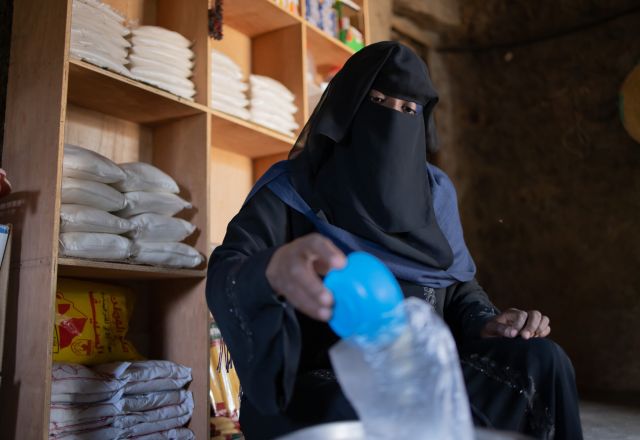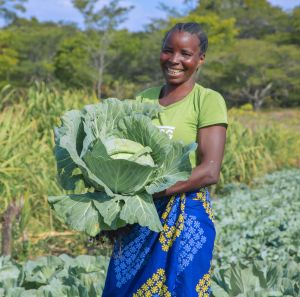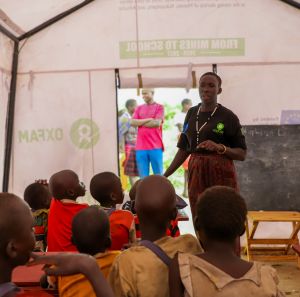This is the story of a young woman building a business to support her family and wider community.
It’s about the power of opportunity. And it’s about determination and vision in the face of poverty and conflict.
In Her Own Words
Before I started this business, we were really struggling. We couldn’t afford the basics for daily living and there wasn’t any steady work available. My father works as a baker, but he’s getting older, and his income wasn’t enough.
Oxfam came and registered us and we trained for 10 days. They helped me start this project based on my idea. After that, they gave us 570,000 Yemeni Rials. I bought shelves, a chair and scales to weigh sugar and rice.— Oqba, shop owner & entrepreneur
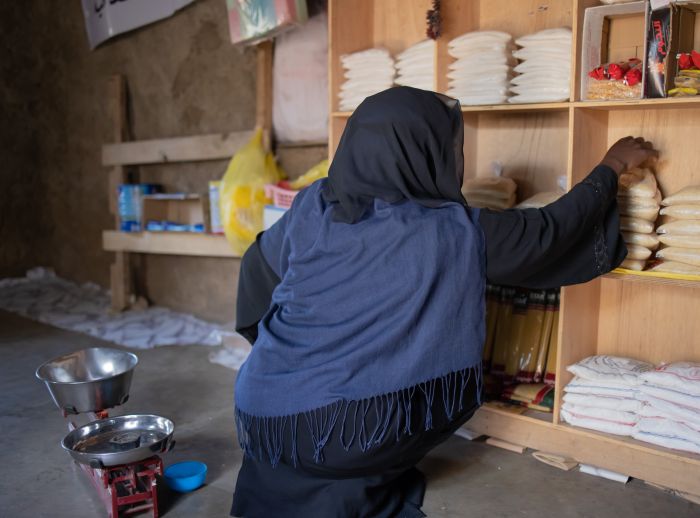
The shop quickly became a lifeline for her community. Previously, families had to travel over an hour to reach the nearest shop. Now, they can buy daily necessities right in the village. Oqba stocks essentials such as flour, tea, oil, salt, biscuits, and batteries, items people rely on every day. She’s even known to extend credit to neighbours in need, letting them pay when they can.
Although rising prices have made it harder to keep the business afloat, Oqba remains determined. Her dream is to expand, adding cold drinks and other items that require refrigeration, if she can one day afford electricity.
Since opening her shop, Oqba has found confidence and connection. What began as a personal effort to support her family has grown into a vital service for her entire village. And in her community, where young women starting businesses is welcomed, Oqba has become a symbol of resilience and resourcefulness.
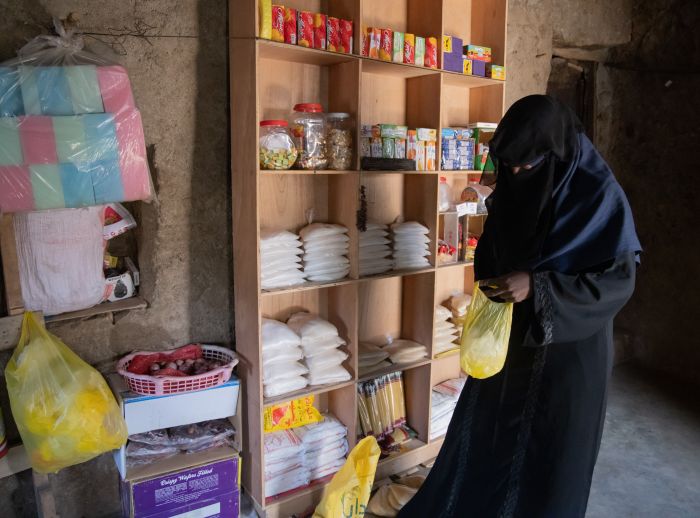
I dream of growing my project. People ask me for things like cold drinks and water, but I don’t have a fridge or electricity. I hope I’ll be able to provide more items and earn a better income. My family is proud. In our village, girls starting businesses is normal. I used to be shy and not know many people, but now, people come from all around to shop with me.
The Situation in Yemen
After nearly a decade of conflict, over 18.2 million people in Yemen, more than half the population, urgently need humanitarian assistance. The war has shattered the economy, collapsed infrastructure, and created widespread food insecurity.
Yemen was already heavily reliant on food imports. The war in Ukraine worsened this, pushing prices even higher. Over 3.5 million people are acutely malnourished.
Escalations in Gaza have worsened the situation. In response to Israel’s war in Gaza, Houthi forces began targeting ships linked to Israel in the Red Sea, triggering retaliatory airstrikes by the UK and US. This has deepened Yemen’s crisis and set back peace negotiations.
Women and young people, like Oqba, are disproportionately affected. Yet they also represent the greatest hope for change.
